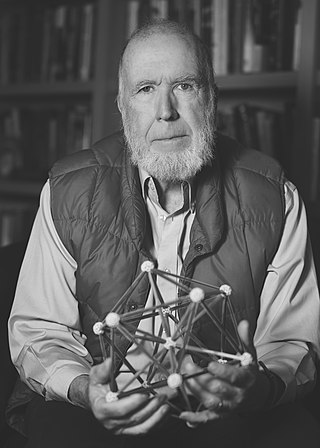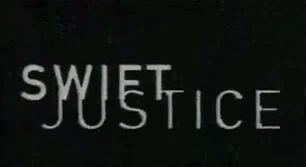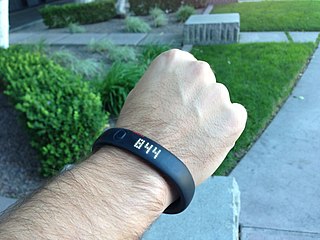
Theodor Holm Nelson is an American pioneer of information technology, philosopher, and sociologist. He coined the terms hypertext and hypermedia in 1963 and published them in 1965. According to a 1997 Forbes profile, Nelson "sees himself as a literary romantic, like a Cyrano de Bergerac, or 'the Orson Welles of software'."
Wired is a monthly American magazine, published in print and online editions, that focuses on how emerging technologies affect culture, the economy, and politics. Owned by Condé Nast, its editorial offices are in San Francisco, California, and its business office at Condé Nast headquarters in Liberty Tower in New York City. Wired has been in publication since its launch in January 1993. Several spin-offs have followed, including Wired UK, Wired Italia, Wired Japan, Wired Czech Republic and Slovakia and Wired Germany.
Project Xanadu was the first hypertext project, founded in 1960 by Ted Nelson. Administrators of Project Xanadu have declared it superior to the World Wide Web, with the mission statement: "Today's popular software simulates paper. The World Wide Web trivialises our original hypertext model with one-way ever-breaking links and no management of version or contents."

The Modern Library is an American book publishing imprint and formerly the parent company of Random House. Founded in 1917 by Albert Boni and Horace Liveright as an imprint of their publishing company Boni & Liveright, Modern Library became an independent publishing company in 1925 when Boni & Liveright sold it to Bennett Cerf and Donald Klopfer. Random House began in 1927 as a subsidiary of the Modern Library and eventually overtook its parent company, with Modern Library becoming an imprint of Random House.

Louis Rossetto is an American writer, editor, and entrepreneur. He is best known as the founder and former editor-in-chief / publisher of Wired magazine. He was also the first investor and the former CEO of TCHO chocolate company.

Trader Vic's is a restaurant and tiki bar chain headquartered in Emeryville, California, United States. Victor Jules Bergeron, Jr. founded a chain of Polynesian-themed restaurants that bore his nickname, "Trader Vic". He was one of two people who claimed to have invented the Mai Tai. The other was his amicable competitor for many years, Donn Beach of the "Don the Beachcomber" restaurants.

Kevin Kelly is the founding executive editor of Wired magazine and a former editor and publisher of the Whole Earth Review. He has also been a writer, photographer, conservationist, and student of Asian and digital culture.

Houseguest is a 1995 American comedy film starring Sinbad and Phil Hartman and directed by Randall Miller, released to theaters in the United States on January 6, 1995.
Ellen Ullman is an American computer programmer and author. She has written books, articles, and essays that analyze the human side of the world of computer programming.

Swift Justice is an American detective drama television series created by Dick Wolf and Richard Albarino. It aired for one season on United Paramount Network (UPN) from March 13 to July 17, 1996. It follows former Navy SEAL Mac Swift, a private investigator who was fired from the New York City Police Department. He receives support from his former partner Detective Randall Patterson and his father Al Swift. Completed on a limited budget, episodes were filmed on location in New York.

Anthony Elgindy, was an American stock broker, and financial commentator who founded Pacific Equity Investigations. Elgindy gained a reputation for his "investigations" of companies. Towards the end of his life, Elgindy was convicted of insider trading and served seven years in federal prison.

Stonestown Galleria is a shopping mall in San Francisco, California, United States. It is located immediately north of San Francisco State University and near the former campus of Mercy High School which closed in 2020 and Lowell High School.
The Milwaukee Brewers' 1986 season involved the Brewers' finishing sixth in the American League East with a record of 77 wins and 84 losses.
Peachpit is a publisher of books focused on graphic design, web design, and development. Peachpit's parent company is Pearson Education, which owns additional educational media brands including Addison-Wesley, Prentice Hall, and New Riders.

Stuart Schuffman, better known as Broke-Ass Stuart, is an American travel writer and blogger known for his guidebook Broke-Ass Stuart’s Guide to Living Cheaply in San Francisco, of which he released two versions in zine form and one in book form. His travel documentary television series Young, Broke & Beautiful debuted in June 2011 on IFC.
The Singularity Summit was the annual conference of the Machine Intelligence Research Institute. It was started in 2006 at Stanford University by Ray Kurzweil, Eliezer Yudkowsky, and Peter Thiel, and the subsequent summits in 2007, 2008, 2009, 2010, 2011, and 2012 have been held in San Francisco, San Jose, New York City, San Francisco, New York City, and San Francisco respectively. Some speakers have included Sebastian Thrun, Rodney Brooks, Barney Pell, Marshall Brain, Justin Rattner, Peter Diamandis, Stephen Wolfram, Gregory Benford, Robin Hanson, Anders Sandberg, Juergen Schmidhuber, Aubrey de Grey, Max Tegmark, and Michael Shermer.
Event Horizons BBS was a popular and perhaps the most financially successful Bulletin Board System (BBS). It was founded in 1983 by Jim Maxey, a self-taught scientist, who was President and CEO and ran his company out of Lake Oswego, Oregon. By 1993, the BBS was grossing over $3.2 million annually. In 1994, the BBS had 128 phone lines and over 34,000 members, and eighteen employees. The organization also offered mail-ordered copies of content for those that did not want to download said via modem. Event Horizons in later years ran on the TBBS system. In 1996, Maxey closed the BBS.

Quantified self refers both to the cultural phenomenon of self-tracking with technology and to a community of users and makers of self-tracking tools who share an interest in "self-knowledge through numbers". Quantified self practices overlap with the practice of lifelogging and other trends that incorporate technology and data acquisition into daily life, often with the goal of improving physical, mental, and emotional performance. The widespread adoption in recent years of wearable fitness and sleep trackers such as the Fitbit or the Apple Watch, combined with the increased presence of Internet of things in healthcare and in exercise equipment, have made self-tracking accessible to a large segment of the population.
First used by Irish-American psychoanalytic psychiatrist Harry Stack Sullivan in the 1940s, Parataxical Integration refers to the mutual condition of parataxic distortions. Parataxical integration exists when two people, usually intimate with each other, are reciprocally reactive to each other’s seductions, judgmental inaccuracies, hostile comments, and manipulations or other "triggering" behaviors. One says or does something causing the other to react, setting off a cyclical "ping-pong", "tit-for-tat", "you-get-me-and-I-get-you-back" oscillation of verbal and/or behavioral reactions.
Gary Edson Arlington was an American retailer, artist, editor, and publisher, who became a key figure in the underground comix movement of the 1960s and 1970s. As owner of one of America's first comic book stores, the San Francisco Comic Book Company, located in San Francisco's Mission District, Arlington's establishment became a focal point for the Bay Area's underground artists. He published comics under the name San Francisco Comic Book Company, as well as publishing and distributing comics under the name Eric Fromm. Cartoonist Robert Crumb has noted, "Gary made a cultural contribution in San Francisco in the late 1960s, through the '70s, '80s & '90s that was more significant than he realizes."











